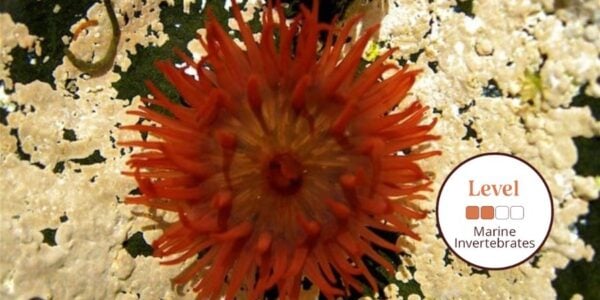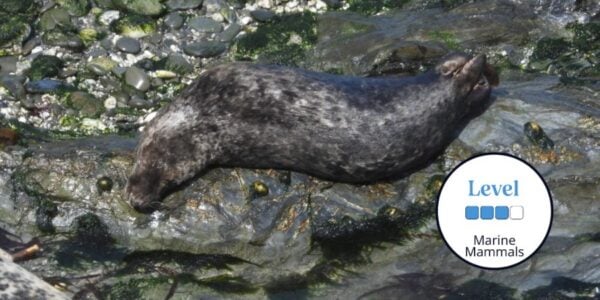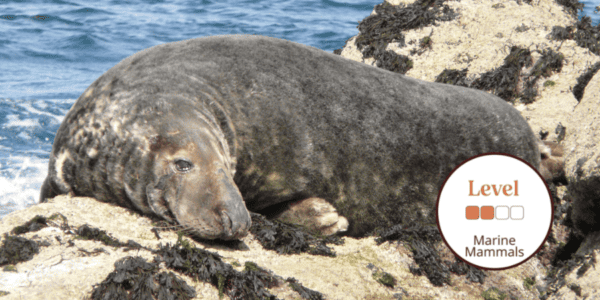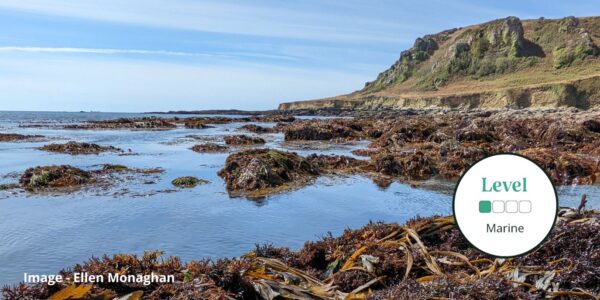Dive into marine mammal biology and ecology with this introductory online course from marine conservation experts, ORCA. Develop your knowledge, learn something new and connect with experts.
What is covered in this course?
- Introduction to Marine Mammals
- Adaptations to the Marine Environment
- Marine Mammal Feeding and Life Cycles
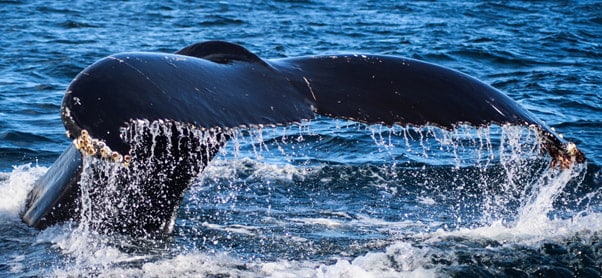
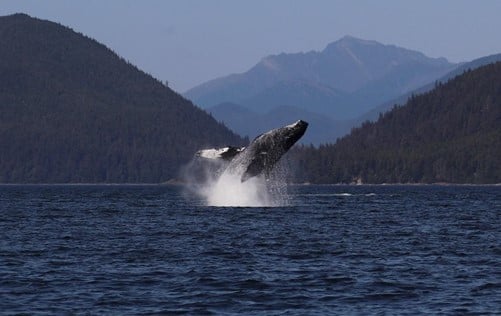
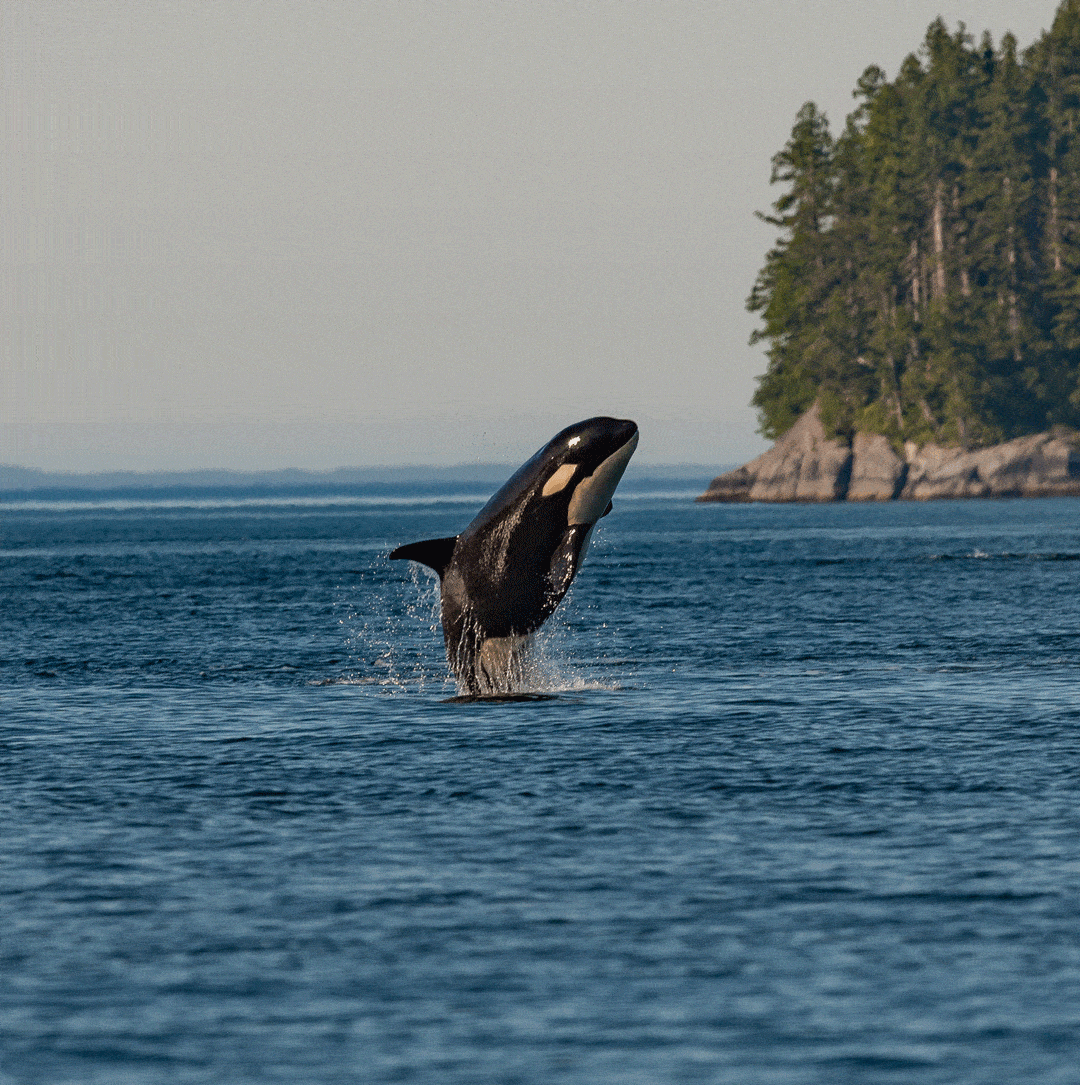
Read More
Marine mammals are majestic animals that live and breed around UK coasts. Learn more about the several species of marine mammal the UK is home to and that you may be lucky to see.
During this online course, you will be introduced to marine mammals, with a particular focus on UK species. The course builds up from an introduction to these fascinating animals to beginning to explore marine mammals’ adaptations to life in the water, feeding and life cycles. All content has been created by ORCA, a marine conservation charity that is dedicated to studying and protecting whales, dolphins and porpoises in the UK and European waters. You can be confident that you are getting information from leading experts working within this field. By the end of the course, you will be able to describe the range of UK species, explain their basic ecology and also have an understanding of how these animals have become adapted to their aquatic life.
This is a 3-week online course covering 3 topics, for which you will complete a variety of self-led online study content, activities, assignments and live Zoom sessions. Time commitment is approximately 2-3 hours a week and an E-certificate is provided upon completion.
By the end of the course, you will be able to:
- Explain what a marine mammal is and the variety of species found in UK waters
- Describe what adaptations marine mammals have to the marine environment, specifically in UK waters.
- Learners will be able to explain marine mammals’ feeding techniques and life cycles.
- Share your knowledge with friends, family and fellow volunteers.
Who Should Attend? – Nature enthusiasts, Students, Rangers, Early career ecologists.
Knowledge Level – Introductory. Level descriptors can be found on the following webpage: Framework and Course Level Descriptors
Prior Knowledge – No existing knowledge or experience is needed for this course. Just a willingness to explore and learn.
Please note: Bookings will close 2 days before the start date to allow for all participants to be enrolled to the online platform – bookings will not be taken after this time. Bookings will close sooner if course capacity is reached
Live Webinar Information
There are 3 webinars for this course, taking place at the end of each week. Please see the listing for the day and time.
Please note – webinars will be recorded and uploaded to the virtual learning platform for learners unable to attend.
Understand how our online courses are delivered
About our partner, ORCA
With their unique take on marine conservation, ORCA is a charity that is entirely dedicated to studying and protecting whales, dolphins and porpoises in the UK and European waters. They work to identify and protect critical whale and dolphin habitats in UK waters and beyond.
The identification of important whale and dolphin habitats is carried out by ORCA’s Marine Mammal Survey Teams, who are all volunteers. This is what makes them so unique. It is their own volunteer teams on board ferries and cruise ships in European waters that conduct the monthly scientific surveys, recording the species they see, where they are and what they are doing. Using the data these teams collect, ORCA can help create safer spaces and a safer future for whales and dolphins.
About the Tutor
Ashleigh Kitchiner
Ashleigh is a passionate marine biologist and environmental advocate. She is formally educated with a BSc. (Hons) in Biology and a Master of Research in Marine Mammal Genetics from the University of Chester, UK. Since university, she has been able to work in quite a few sectors, from NGOs, private consultancies and as a freelancer implementing marine mammal mitigation during offshore projects. Ashleigh is now a Senior Marine Mammal Consultant and works with many organisations to create marine mammal risk assessments, monitoring survey plans, mitigation protocols and much more. When she’s not busy at work or outside with her binoculars she sits on four committee boards, is a STEM Ambassador and Girl Guide volunteer. Ashleigh has worked and volunteered for ORCA since 2017, when she spent the summer in the the Bay of Biscay inspiring guests about the wildlife around them on their ferry journey – she calls this experience life changing!
Anna Bunney
Anna Bunney is the Head of Education for UK marine conservation charity ORCA, and manages the outreach and education parts of ORCA’s programmes. A geographer by training and wildlife conservationist by trade, Anna is particularly fascinated with marine mammals and has a particular soft spot for humpback whales!
Example Timetable
Week 1: Introduction to Marine Mammals
Self-study material available at the course start date
Week 1 Live Webinar
Week 2: Adaptations to the Marine Environment
Self-study material available after week 1 webinar
Week 2 Live Webinar
Week 3: Marine Mammal Feeding and Life Cycles
Self-study material available after week 2 webinar
Week 3 Live Webinar
The final deadline to complete any outstanding activities and self-study components is 2 weeks after the final webinar
Time commitment: This course will require approximately 2 - 3 hours of your time each week. This includes covering course materials on our Moodle learning platform and the zoom session
What's Included
The course includes:
- 45-minute interactive Zoom workshops to connect with the tutor and other participants
- Expert tuition for which the Field Studies Council is renowned
- Activities to work on independently in advance of each Zoom workshop
- Course completion certificate
- Once registered, you will follow well-illustrated, user-friendly ’books’ to pick up knowledge. Quizzes and skill-checks will give you instant feedback on your learning. Forums give students the chance to interact with each other as well as a place to share work.
Bursaries and Subsidies
Student Discount
This course is eligible for a student discount. If you are a current student, please use discount code BioStudent20 at checkout for 20% off all Biodiversity courses.
Before You Attend
Accessing Your Course
- Once you sign up you’ll receive an email at least 24 hours in advance of the course opening with details of how to access our easy-to-use platform, Moodle.
- Moodle can be accessed through a browser or an app.
- Webinars are via Zoom so you won’t need any new software to attend
Recommended Devices
It is recommended that you access your course through a PC or laptop. Please be aware that there will be reduced functionality if you decide to access the course through a tablet or smartphone. The Field Studies Council is unable to email content directly to you.
Opportunities to attend this course
This course is not currently available to book. Dates will follow soon.
Sign up to our Email Newsletter
Progress Your Learning
This is a training course from the Field Studies Council, delivered by expert tutors with an approachable learning style. After attending this course, you may like to progress your learning with further relevant courses or branch out into other areas of natural history. The Field Studies Council offers both online and in-person courses, so you can choose the learning style that suits you best.
The course gives you the opportunity to immerse yourself in a new subject and acquire novel skills. Our online portal gives you time to study at your own pace and fit the lessons around your own schedule.
If you have any questions about our online courses please check our Frequently Asked Questions
Please email [email protected] if you have any questions.
Group Bookings Made Easy
If you have a group of 10 or more individuals wanting to complete one of our courses, our team are available to discuss your options – from discounts to private team courses. Find out more!
You can rest assured that the absolute best content from an expert in environmental education will be at your fingertips. In choosing a Field Studies Council course, you will be joining thousands of people who learn with us each year.

